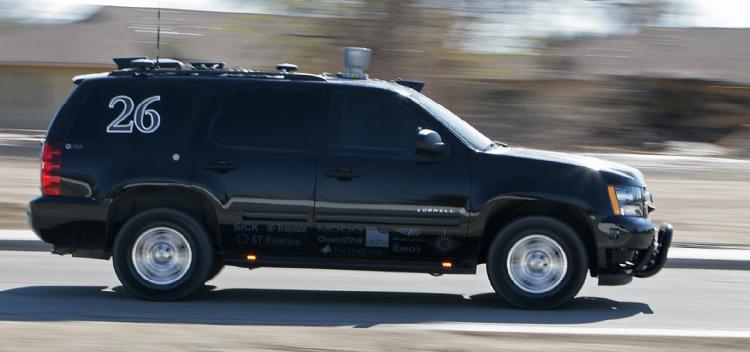Autonomous cars and robotic perception at the 2018-19 Distinguished Seminar Series
Presenter: Mark Campbell, PhD

Campbell’s research involves autonomy for systems such as robotics, aircraft and spacecraft. As Campbell explained, perception, the way in which sensor data is translated into usable information, is of great importance. Through understanding variables that affect perception, one can create a safer, more accurate self-driving car, for instance.
There are many challenges to perception and the solution approach differs when there are single sensors versus multiple sensors, static versus dynamic scenes, and distributed versus point sensors. Perception may be improved by probabilistic terrain modeling to factor in uncertainties of the sensors and by intelligently sharing information between sensors to map an area more quickly.
Campbell is involved in the development of autonomous cars. He lists sensors that may be used in autonomous vehicles, including lidar, radar and vision. He explained that lidar is good for detecting position, radar is good for detecting velocities, and vision is good because it’s inexpensive and increasing in accuracy. He noted that many accidents that occur in self-driving cars are in those without lidar. Another key technology that Campbell believes to be phenomenal is deep learning. He says, “It allows for segmenting down to the pixel.”
Campbell believes that many of these technologies have come a long way and that the future of autonomous vehicles looks bright. However, one of the biggest challenges moving forward will be accounting for anomalies like the unpredictable behaviors of outlier cases, such as someone unexpectedly drifting into the wrong lane with no warning.
Skynet, Cornell's autonomous car and one of the six finishers of DARPA Urban Challenge.


